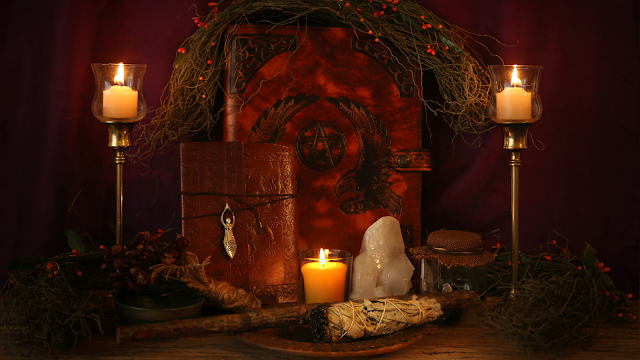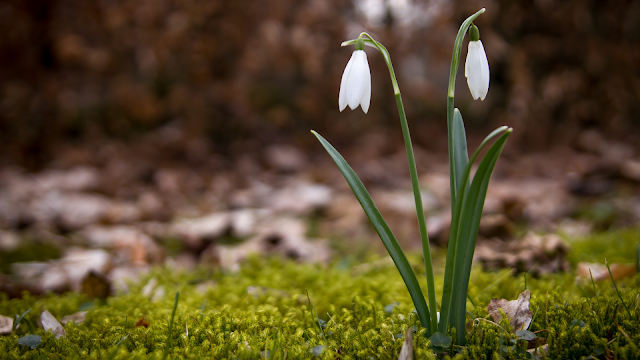Cultural Appropriation in Witchcraft
The type of witchcraft which is most common is eclectic, a style by which you take aspects of different types of witchcraft (divination, green, hedge, etc.) and create your own blend so the practice reflects who you are as a person. However, where you find these aspects can often have negative connotations if you don't fully appreciate and understand where these aspects of witchcraft come from.
As an English witch, when I first started my practice the thing I noticed most was that a lot of the learning guides on "how to be a witch" were American. English witchcraft is often consumed by the Wicca religion, whereas the New Age Paganism which spread in the US often expresses a practice more appealing to non-religious witches.
Yet, the difficulty of witchcraft in America is that a lot of the practices derive from ancient religions and customs from the indigenous people they conquered, or from other countries entirely as witchcraft (the type western people practice today) was not born in the US and instead was created from an eclectic culture. For example smudging (Native Americans) and the use of Chakras (India).
One of the main aspects of being a witch is to be in harmony with Nature. The last thing that a lot of witches expect when they participate their practice is to somehow be disenfranchising the less fortunate, which is why if you're starting out in your practice, you should learn about the cultural appropriation that you may find in a lot of different aspects of witchcraft and how you can avoid it.
What defines cultural appropriation?
“Cultural appropriation is the adoption or use of elements of one culture by members of another culture. Cultural appropriation is seen by some as controversial, notably when elements of a minority culture are used by members of the cultural majority; this is seen as wrongfully oppressing the minority culture or stripping it of its group identity and intellectual property rights.”
It's about oppression. Conquered cultures and minorities have historically been mocked and ridiculed for things (language, dress, appearance) that defined them as a people by their oppressors. Anything of merit was often taken from them, and then adopted into the conquers society/used to make a profit from.
Witchcraft has been a part of this - on both sides. On a whole in today's society witches are mocked in the media as Devil worshippers, crazy "hippies" or just insane in general. There has been some movement to change this as a rise in New Age stores and ways of life become more popular, but with that companies are seeking to exploit the witch heritage.
For example the Sephora starter witch kit back in 2018, that included a tarot deck, perfumes - not essential oils - a crystal and a sage wand, with none of the history or context as to why those things would be important in witchcraft. Purely there for the profit and aesthetic. Inherently, there was nothing bad in selling those products - but they were being marketed to a people who mocked witches in one breath, whilst tried to make money on our way of life and use our aesthetic as one might with makeup in another.
A lot of American wiccans and witches were angered by this cultural appropriation, and yet we can see that these same witches also borrow from other cultures without understanding the history. It's important if we can feel the awful effects of oppression, to be mindful in our own practice with how to avoid doing the same to other cultures.
How I adapt
I'm an eclectic witch. I'm also white, middle-class (from a working class background) and live in the UK. I've never faced discrimination because of my religion (I don't have one), or the colour of my skin and heritage. I come from a place of privilege and with that, I understand that not everyone lives the way I do and can navigate this world as easily as me.
When I started my practice of witchcraft, it was before the world got "woke". The average person on the street didn't know what cultural appropriation was, and discrimination and racism was so ingrained into our subconscious that you would be hard pressed to be able to find the average person on the street who could point out examples of it.
That being said, my practice of witchcraft has always been one where I question where my learning comes from. I've never adopted a thing into my practice without looking into the history. As an English witch, I want my practices to be as close to the heritage of that as possible - which can often be tricky considering how many times England has been invaded, or has invaded somewhere else and taken on aspects of those cultures.
The easiest way I have found, if you already have an established craft that involves aspects from other cultures, is to educate yourself on the history, on the importance of these aspects in other cultures and see if there are alternatives closer to your own heritage that you could adopt.
Especially for witches who decide to have a patron deity or choose a witch name from an entirely different culture, it's important to understand the whole context of where those deities and names came from, the culture behind them, why they are sacred and whether it feels right taking on such an important part of a people whom you do not belong to.
Choosing your words
An aspect of cultural appropriation that we don't often realise, is using terms that mean specific/important things to one culture whilst often don't have that same heavy, weighted importance when it comes to the actual thing referred to in our own way of life. Often in these cases, simply changing what words you use can bypass this tricky appropriation as there are alternatives in your own culture that refer to the thing without it having the same history or cultural importance. (This is not to say that if you adopt a specific part of one culture and then call it something else that this is okay, more that there are often a parallel aspect of certain things in different cultures, see below for examples).
Smudging is a Native American practice. You cannot smudge unless you are Native American as the Native American religions are closed to outsiders and taught/passed down by tribes. If you do practice by cleansing with herb smoke, what you are doing is smoke cleansing. Words matter. And unless you are Native American, "smudging" or "smudge sticks" are not for you. As an English witch, I call the practice of smoke cleansing "saining", a word that derives from Old English which means to protect, to bless, and call the bundles of herbs that we use to sain "saining sticks" or "saining wands". The practice of cleansing by smoke does not belong solely to Native Americans as it has been used in many cultures throughout time - but smudging is. See the difference?
Another form of cultural appropriation in regards to American witches, is the term "spirit animal", which is another Native American word in which they are trying to reclaim. Many different cultures have some form of animism, yet the fact that Native Americans are fighting to reclaim this part of their heritage means that - should you use this term - you should try and adapt your vocabulary. Using the term familiars (an English phrase) or patronus (from patron in Latin, or a more popular term from Harry Potter) are more culturally acceptable.
Karma is also another word which has become so ingrained into western pop-culture that most people don't recognise it as cultural appropriation. Personally, I have used this phrase, but have recently started to try and adapt my language to change it to cosmic justice as I realise that (whilst I believe in reincarnation) on a whole I do not prescribe to the schools of Indian religions which have karma as a foundation of their belief system.
Education
If you want to educate yourself of the different aspects of other cultures that might play into your craft, make sure you're looking at the right sources.
E.g. If you are learning about the Chakras, don't just read about them from a western author.
Don't purchase craft materials and books made/written by someone outside of that culture as they are making a profit from someone else's heritage (stripping that culture of their intellectual property rights, as per the definition of cultural appropriation). They also will likely not have the full grasp on the culture they are portraying and their practices unless they are an anthropologist by profession.
Create not appropriate
I will never tire of saying this but witchcraft is what you make of it. It's not a religion that has prescribed ways of working. You don't need to learn runes or chakras or other aspects of witchcraft that you see. Your practice is individual to you.
Create how you want to use your craft. Use your own words, create your own sigils and spells. Look into your own heritage and see whether there are any aspects that you enjoy from there and incorporate that into your craft or think of what you want to get out of your practice and develop new ways of working magic.
I wish you well on your own journey into witchcraft, and hope you learn well, and strive to create the best craft you can for yourself.
Blessed Be,
Diana Greenbird




Comments
Post a Comment